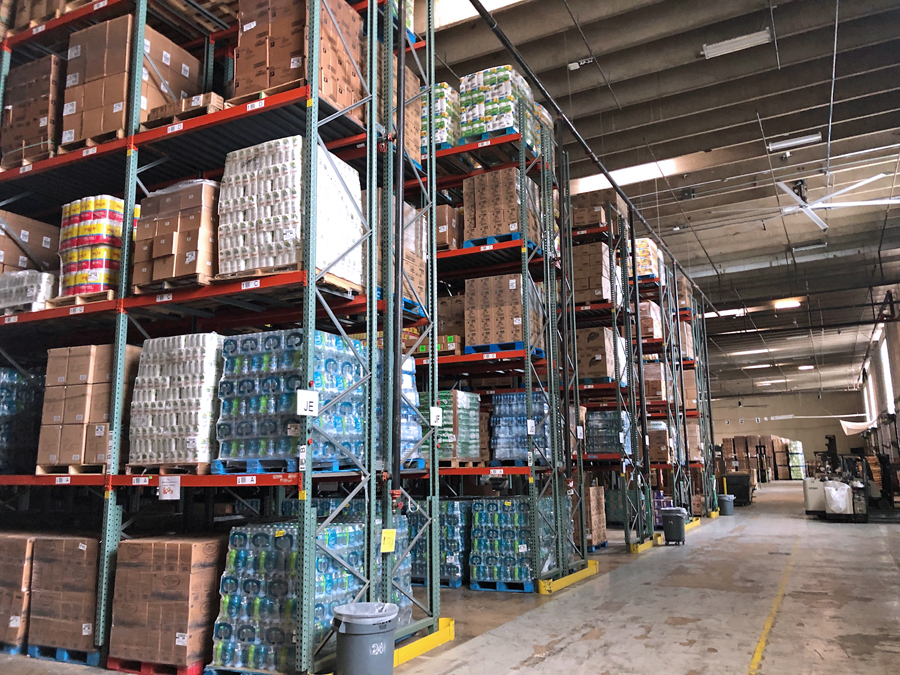Demand for industrial warehouse space remains high during COVID-19 emergency

The COVID-19 pandemic that brought most of Puerto Rico’s economic activity to a screeching halt in mid-March has created a very specific niche for industrial warehouse operators, which are providing much-needed square footage to emergency response companies.
Demand for short-term leases — from three months to a year — for warehouse space to store specific COVID-19 related protective gear, medical equipment supplies, heavy machinery, buffer stock of inventory for distribution, stockpile materials, and excess inventory for supermarkets are being written up at a fast pace, said Ryan Christiansen, CEO of Puerto Rico Industrial Solutions and Management (PRISM), which has 2.2 million square feet of industrial and logistics warehouse properties in the San Juan metropolitan area.
“We’ve definitely seen a spike, and we’re fielding calls and prospects over the phone on a daily basis,” said Christiansen. “During the lockdown, we’ve executed 120,000 square feet of renewals. We have negotiated terms pending execution of 275,000 square feet, and we have a pipeline of new prospects during the lockdown for about 135,000 square feet there.”
Major companies like Walgreens, FedEx, Baxter and others involved in providing resources for frontline personnel, as well as local consumers, are part of the roster of firms investing in distribution facilities in the San Juan metro area.
PRISM has industrial warehouse space spread among five industrial parks, three of which are in Carolina, another in Cataño and fifth in Bayamón.
“We’re providing a short-term need, but we’ve also been working on renewing leases that were up this year, which have signed on for an additional five years and their continued interest tells me that they are looking at Puerto Rico for a longer term,” said Héctor del Río Jr., the company’s COO.
Upon acquiring the properties in August 2019, PRISM launched a project to invest some $12 million in improvements and upgrades to its portfolio. Then the March lockdown happened.
“We were ready to begin construction and we had already chosen and awarded new construction contracts,” del Río said. “We’ve continued to work remotely, and now with the new Executive Order [that has been signed] we will be able to begin that program in May.”
The plan calls for repairing loading docks, rolling doors, painting, fixing electrical systems, pipes and sewers, as well as municipal roads used by tenants at the different industrial parks.
Christiansen said the upgrades respond to PRISM’s “mission to provide upgraded assets, best-in-class industrial facilities, and service to our tenants.”
“Our warehouse portfolio comprises such a critical portion of the logistics infrastructure on the island and the facilities are extremely well-built and resilient,” he said. “They have all the other structural features, like high ceilings, generous parking and loading space for trucks, but the former ownership didn’t do the upkeep.”
Expansion plans are on the radar
Aside from sprucing up its current properties, the executives confirmed that longer-term plans call for picking up other facilities to increase PRISM’s portfolio to four million square feet.
“In a perfect world, we’d love to do it this year. We’re very well capitalized and it’s part of the business plan, but there are many uncontrollable factors,” Christiansen said.
Del Río said the expansion could take place outside the San Juan metro area, in response to last week’s announcement by the U.S. Department of Transportation, granting Puerto Rico a two-year waiver to allow foreign air carriers to provide certain expanded cargo and passenger transfer services at Puerto Rico’s international airports.
This includes the Luis Muñoz Marín International Airport, the Mercedita International Airport in Ponce; and the Rafael Hernández International Airport in Aguadilla.
“So that will open opportunities in Aguadilla and Ponce to generate movement in those areas and the answer is that yes, we’ll be looking obviously into expanding our portfolio in those areas as well,” del Río said.
Another potential source of growth is the effort currently underway to bring manufacturing back to the United States from China and other foreign locations. This movement could benefit Puerto Rico, which already has the infrastructure and human capital to play a “leading role,” Christiansen said.
“We’re also monitoring that closely, as it kind of ties into areas where we could expand our footprint,” he said.
Another aspect that could also represent growth down the road is the ongoing campaign by certain members of the private sector to convince the government to eliminate the tax on inventory or stored goods, which would allow companies to have greater amounts of products on hand.
“Especially after the hurricanes, the earthquakes and now the pandemic. It proves that it’s obvious across the board that it’s necessary to facilitate businesses with the ability to have greater inventory to better serve the Puerto Rico economy,” said Christiansen, adding that another ping on PRISM’s radar is the effort to eliminate the Jones Act provisions that regulate Puerto Rico’s maritime transportation, “and complicate the island’s ability to receive supplies.”













Imex Zone logistics provide warehouse service… inventory admitted in FTZ DO NOT PAY – IVU and property taxes 787-749-9677